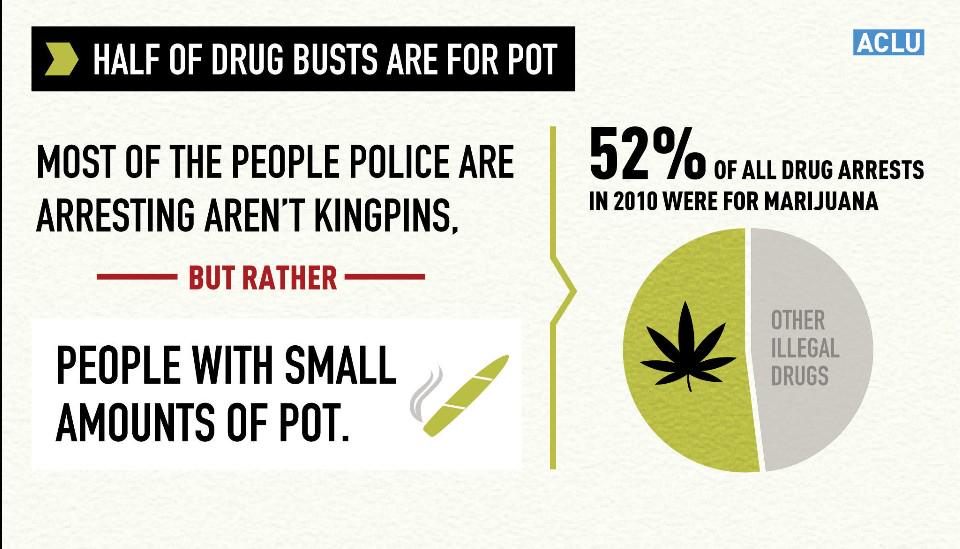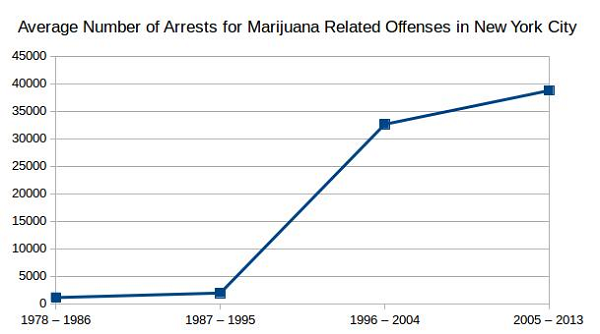Those 700,993 marijuana arrests last year were up more than 7,000 from the year before. Nearly 90 percent of all marijuana arrests in 2014 being attributed solely to possession of the drug, though the average amount of weed for those possession charges was immediately unclear.
"It's unacceptable that police still put this many people in handcuffs for something that a growing majority of Americans think should be legal," Tom Angell, Chairman of Marijuana Majority, said in a statement Monday.
"A record number of states are expected to vote on legalizing marijuana next year, so we hope and expect to see these numbers significantly dropping soon. There’s just no good reason that so much police time and taxpayer money is spent punishing people for marijuana when so many murders, rapes and robberies go unsolved."

Seven states are poised to vote in 2016 for legalizing marijuana in their borders by either decriminalizing possession of the drug or by legalizing it. Colorado, Washington state, Oregon and the District of Columbia have all completely legalized recreational use of marijuana.
An increasing number of state law enforcement officials have begun to speak out in favor of legalizing or decriminalizing the drug because the lopsided number of arrests puts an unnecessary strain on local policing efforts. Albuquerque, New Mexico and Toledo, Ohio are but two cities that have recently voted to lower the penalty for possession of the drug to be punishable by a fine instead of potential jail time, and there is a growing movement in states such as Wisconsin and parts of New York to do the same there.
"We don't need to be in the pot business anymore," Albany County District Attorney David Soares said earlier this month in reference to the revenue municipalities generate from marijuana arrests.

Just last week, Massachusetts highest court ruled police cannot legally stop drivers who they suspect could be in possession of marijuana, reported the Boston Globe. While citations can still be issued to people in found to be possessing pot, the move in the Bay State is largely seen as being part of a bigger trend nationally where voters are increasingly insisting on decriminalizing the plant.
Arresting people for possession of marijuana is “not consistent with the Massachusetts constitution, nor is it consistent with the will of the voters who passed decriminalization,” Matthew Segal, legal director of the ACLU of Massachusetts told the Globe.

No comments:
Post a Comment